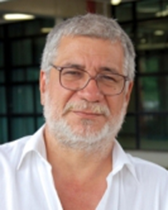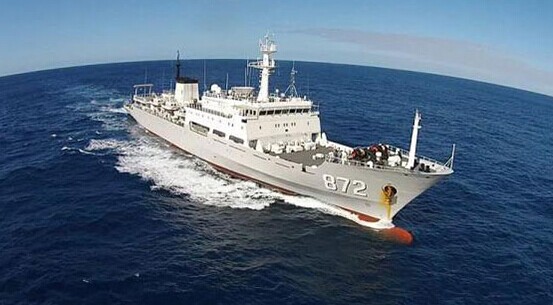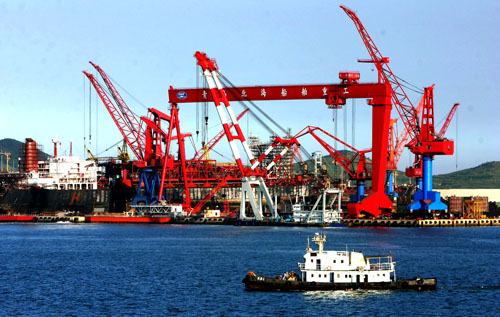New Electrochemical Tools for Studying Corrosion Processes in Oil and Gas Industries
[abstract] This talk presents recent results obtained in our laboratory1 covering the following subjects:
1-Corrosion fatigue in high pressured system:
Using a new autoclave design it was possible to perform corrosion fatigue tests under high pressure as easily as the tests performed in atmospheric condition. The autoclave internal pressure was compensated using the Pascal law. Furthermore, four arm bridge strain gauges have been used to measure the load avoiding the use of a loading cell. The system facilitated significantly the tests done in high pressure because under this condition the traditional loading cell should be used inside the autoclave and this setup has not an easy handling. The strain gauge also allows measuring the crack length without using the classical direct current potential drop (DCPD), widely used for fatigue in the air, but it is questioned in presence of an electrolyte.
2- Kinetic of anodic and cathodic corrosion reactions under pressured CO2:
Cathodic reaction:
A new rotating disk electrode assembly in an autoclave was developed allowing to measure electrohydrodynamic impedance in high pressure CO2 medium. The results confirmed the so-called buffer effect of CO2 proposed for atmospheric pressure, but a chemical-electrochemical model must be developed to take into account particularities seen in high pressure of CO2.
Anodic reaction:
In total absence of any support electrolyte and at different CO2 partial pressures, electrochemical impedances were measured using a two-electrode cell inside an autoclave. Furthermore, weight loss and local pH measurements were used to better interpret the impedance results. Anodic role of CO2 was not detected in the different conditions studied.
1-LNDC - Corrosion, welding and non-destructive laboratory at Federal University of Rio de Janeiro. Web site: lndc.com.br.
时间:2016年8月10日11:00-11:30
报告人:Oscar Rosa Mattos
个人简介

Oscar Rosa Mattos
Oscar Rosa Mattos, born in 1953, Metallurgical Engineer 1975- Federal University of Rio de Janeiro, 1977- Master of Science- Federal University of Rio de Janeiro, 1981- Docteur D’État – Université Pierre et Marie Curie- Paris.
Between the years 1977-1981 I worked at the CNRS in Paris on the subject of my doctoral applying the technique of electrochemical impedance in the anodic dissolution of iron and iron-chromium alloys. Returning to Brazil, I implemented the impedance technique in our laboratory working on painting and the role of anions in the anodic dissolution of iron, cobalt and copper. Subsequently, the work was extended to electrodeposition and kinetics of anodic dissolution of others metals and alloys and also inhibitors Working in collaboration with Dr Bernard Tribollet, it was implanted in my laboratory the electro-hydrodynamic impedance technique. With this technique, I worked on various topics involving the mass transport kinetics of the electrochemical processes. It was mainly addressed the influence of a viscosity gradient in the mass transport mechanism. In the years 2005-2009 I received from PETROBRAS (Brazilian Oil Company) financial support to build the LNDC- Corrosion, welding and non-destructive laboratory, fully adapted to work under the conditions required by the problems of the oil and gas industries. From then, I started to work more on the technical issues and R & D involving this area.
免责声明:本网站所转载的文字、图片与视频资料版权归原创作者所有,如果涉及侵权,请第一时间联系本网删除。

官方微信
《腐蚀与防护网电子期刊》征订启事
- 投稿联系:编辑部
- 电话:010-62316606-806
- 邮箱:fsfhzy666@163.com
- 腐蚀与防护网官方QQ群:140808414





